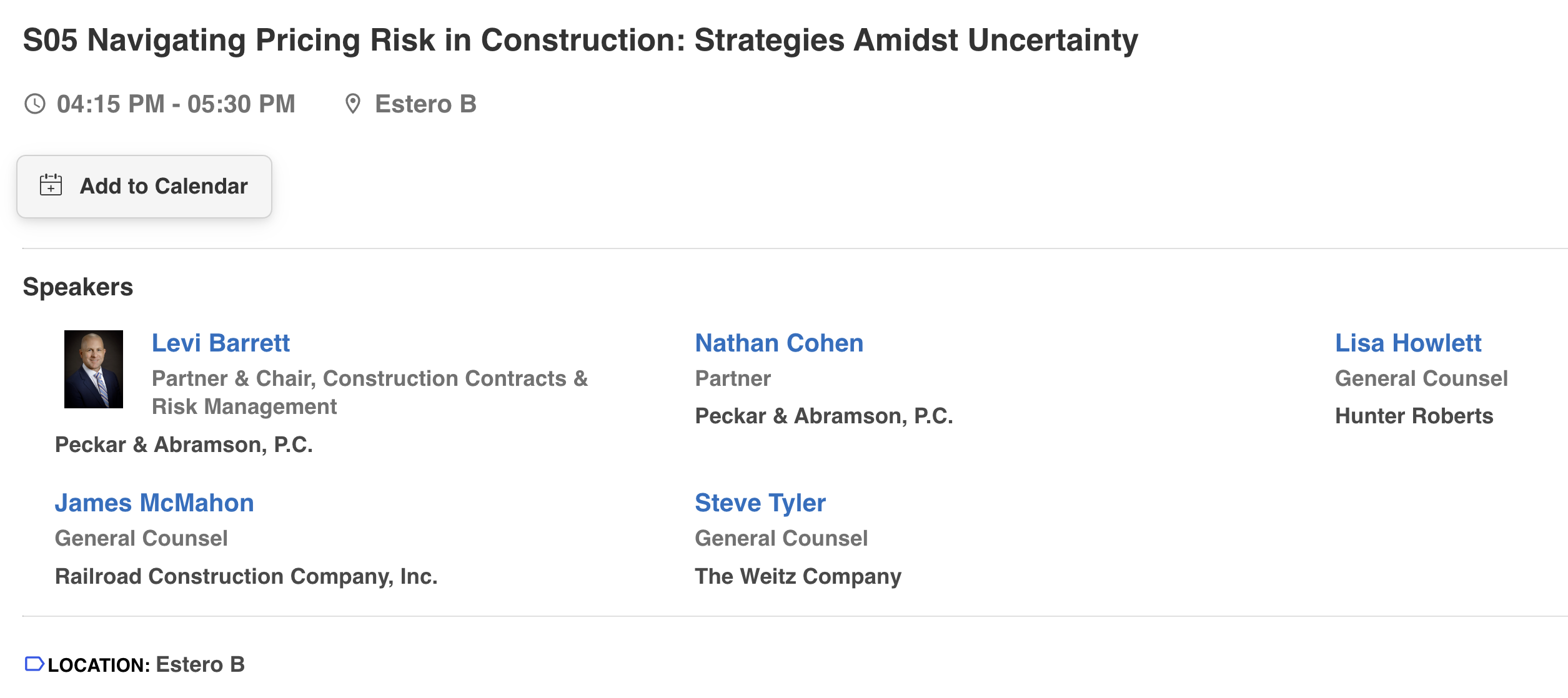BONITA SPRINGS, FL – Negotiating construction contracts in an era of tariffs, immigration crackdowns, and political unrest is particularly challenging. A five-person panel will tackle these issues on day one of Construction Super Conference.
Third Thursday sat down with panelist Levi Barrett, partner and chair, Construction Contracts & Risk Management, Peckar & Abramson, to get a preview of what attendees can expect to hear.
Third Thursday: How have tariffs impacted contract negotiations?
Levi Barrett: If you’re entering into a construction contract, particularly in the private sector, it’s possible, and advisable, to include a provision that entitles the contractor to additional compensation associated with new or increased tariffs enacted after the execution of the contract.
 Third Thursday: What are some of the associated issues caused by tariffs?
Third Thursday: What are some of the associated issues caused by tariffs?
Barrett: Material price escalation is one of the key concerns that we see arising out of tariffs. If a tariff is applied to goods from China, the price of steel from China increases, but there’s also an effect on the domestic market for steel. Domestic steel suppliers – either opportunistically, or as a result of increased demand for domestic steel, may increase prices.
If you have that clause in your contract relating to tariff relief, that might get you relief from the tariff. But in many cases you will need a separate provision – one dealing with material price escalation to deal with indirect price increases. At CSC, we will definitely want to talk about how construction contracts should address both tariff and escalation issues.
Third Thursday: Are tariffs covered by change-in-law provisions?
Barrett: It’s going to depend on the language of the change-in-law provision. In drafting contracts, if there’s a potential for gray, we want to address it in black-and-white. I would make the case that it is a change in law, but I would also include a tariff relief provision in my contract to make it abundantly clear that I get compensation for tariff impacts.
Third Thursday: What’s a guiding philosophy when it comes to pricing in risk?
Barrett: We want to own the risks that we can control. We want to try and shift the risk that we can’t control to the party in the best position to mitigate those risks. When we’re talking about drastic price increases resulting from tariffs or other political or economic events that we can’t predict, we want to work with owners to try and come to reasonable solutions with respect to risk apportionment.

Session takes place on Tuesday, Dec. 9. at Construction Super Conference in Bonita Springs, Florida.
Third Thursday: Why are you spending the time, money, and effort to attend CSC?
Barrett: I believe very strongly in the value of attending in-person events. There’s value in webinars, but there’s really no substitute for immersive events like CSC. It’s difficult to respond to the audience in a webinar when you’re not seeing that person’s face. Engagement is so much more effective when you’re able to get that visual or verbal feedback from an audience during an in-person presentation. At CSC you’re trying to really create a dialogue and that’s what super conference does so well. It allows you to become immersed with peers and colleagues and have real dialogue about these relevant issues.

